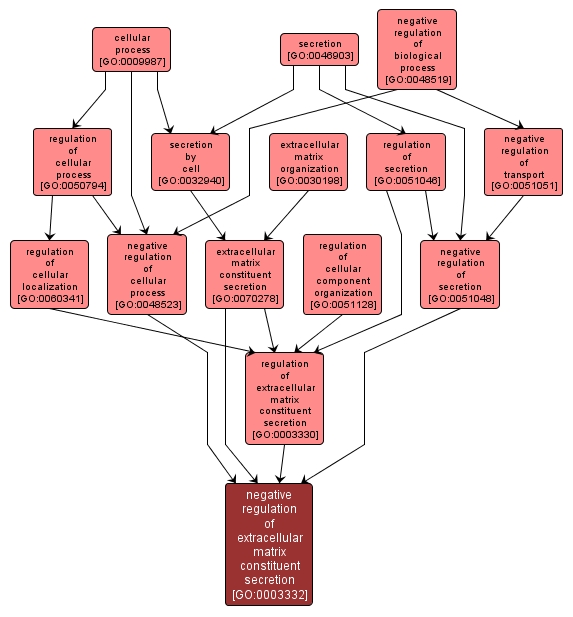GO TERM SUMMARY
|
| Name: |
negative regulation of extracellular matrix constituent secretion |
| Acc: |
GO:0003332 |
| Aspect: |
Biological Process |
| Desc: |
Any process that decreases the rate, frequency, or extent the controlled release of molecules that form the extracellular matrix, including carbohydrates and glycoproteins by a cell or a group of cells. |
|

|
INTERACTIVE GO GRAPH
|














